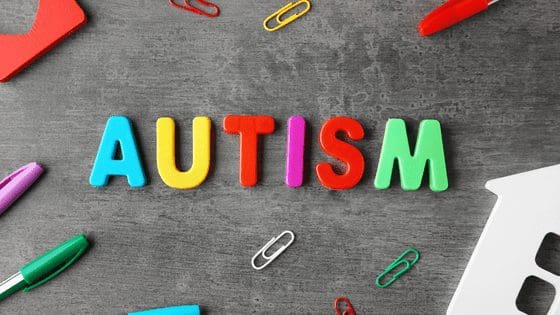We use numbers constantly in our daily lives. In fact, it’s difficult to imagine a day without using some basic maths, such as when counting change, reading a clock, or making travel plans. Nonetheless, these everyday tasks can be challenging for people with dyscalculia.
Dyscalculia affects an individual’s ability to understand and work with numbers. Similar to dyslexia impairing reading-related brain regions, dyscalculia interferes with the knowledge and skills connected to maths and numbers. Although signs of dyscalculia often first appear during childhood, adults may have the condition without knowing.
This article examines what dyscalculia is, how it can show up in the workplace, and the relationship between dyscalculia and other neurodiversity conditions.
What is dyscalculia?
There is no singular definition of dyscalculia. Essentially, it is a learning disorder that affects an individual’s ability to understand and manipulate numbers. Like dyslexia, it affects the same areas of the brain that are responsible for reading and writing. It can make performing basic arithmetic operations, such as addition, subtraction, multiplication, and division, difficult. Dyscalculia can also affect a person’s ability to read a clock, measure time, memorise numbers and calculate distances.
Dyscalculia is also referred to as maths dyslexia or numeracy dyslexia and is often categorised as a learning difficulty or a learning disability.
How common is the condition?
About 5-7% of the population suffers from dyscalculia, making it one of the most prevalent learning impairments. It is more predominant in children, and improving results depends on early intervention. It is not related to intelligence or cognitive ability, and people with dyscalculia can and do excel in other areas.
While we can all struggle with numbers occasionally, those with dyscalculia will experience more significant challenges than those without the condition.
What are the signs in adults?
Although the symptoms can differ from person to person, some typical signs include trouble with fundamental arithmetic, maths concepts, reading a clock, taking measurements, and using mental maths. Those with dyscalculia may also have difficulty organising their time and solving problems.
Trouble managing money is one of the typical signs and symptoms of adult dyscalculia. Individuals with dyscalculia may also struggle with time management, affecting decisions about how long a task should take or how to schedule travel hours. They may also find measuring ingredients in recipes difficult.
Is dyscalculia a disability?
Dyscalculia can create significant challenges in both personal and professional life, in adulthood as well as childhood. While it may be described as a learning disability, typically, people with dyscalculia do not consider themselves ‘disabled’.
However, dyscalculia, along with other neurodiverse conditions, is likely to constitute a ‘disability’ under The Equality Act 2010. As such, people with dyscalculia will be afforded additional protection under the legislation.

Dyscalculia and neurodiversity
Dyscalculia is also a neurodiverse condition that affects individuals in unique ways. It is essential to understand that individuals with the condition are not less intelligent or capable than their peers, and they require support and accommodations to succeed. Embracing neurodiversity in the workplace and society can create more inclusive and diverse communities.
Below is a list of other neurodiverse conditions and how they are related to dyscalculia:
Dyslexia and dyscalculia
Dyslexia and dyscalculia are both described as conditions and are often co-occurring. People with dyslexia are more likely to have dyscalculia. Research shows that 60% of people with dyslexia experience challenges when it comes to maths.
Both conditions can create significant challenges in academic and professional settings, and early intervention is critical for improving outcomes.
Dysgraphia and dyscalculia
Dysgraphia and dyscalculia are two distinct learning disorders affecting different brain areas. Dysgraphia is a disorder that affects an individual’s ability to write legibly, whereas dyscalculia affects an individual’s ability to understand and manipulate numbers.
ADHD and dyscalculia
ADHD and dyscalculia are two separate conditions that can co-occur. ADHD affects an individual’s ability to pay attention, focus, and control impulses. Individuals with ADHD may struggle with completing tasks, staying organised, and managing time, impacting their ability to learn and understand maths concepts. However, ADHD does not cause dyscalculia, and individuals with dyscalculia do not necessarily have ADHD.
Dyscalculia and autism
Dyscalculia and autism are two different conditions that can co-occur. Autism is a neurodiverse condition that affects an individual’s ability to communicate, socialise, and engage in repetitive behaviours. Individuals with autism may also struggle with maths concepts, and dyscalculia is more prevalent in individuals with autism than in the general population. However, autism does not cause dyscalculia, and individuals with dyscalculia do not necessarily have autism.
Supporting dyscalculia in the workplace
Individuals with the condition may experience substantial difficulties at work. For example, it can affect their capacity to manage budgets, calculate timesheets, or read data charts, influencing work performance and career prospects. Nonetheless, many people with dyscalculia can excel at work with suitable accommodations and assistance.
It has been shown that people with the condition will experience different challenges, and how those challenges affect them daily will also vary. So, it is essential to treat each person uniquely. Focus on their strengths and weaknesses generally. Discuss areas of development and reasonable adjustments that can be made.
Here is a list of ways workplaces can support individuals with dyscalculia. You may be surprised at how ‘reasonable’ each of these are and how they can support other employees:
Reminders, alarms, and timers
It can be challenging to schedule your day or choose when to move on to the next task if you have dyscalculia. You can keep track of time while working with time management apps like calendars, reminders, alarms, and timers on your smartphone. The use of such tools is also beneficial for people with ADHD.

Provide materials for meetings
Where meetings involve data to be reviewed during meetings for ideas to be generated or decisions made, don’t drop the information on people in the meeting. Provide the reports in advance and let people know what you need. This way, people with dyscalculia can digest the information in their own time instead of feeling unnecessary pressure in the meeting.
Not only is this beneficial for people with dyscalculia and dyslexia, by providing people who are detail orientated or introverted with information beforehand will generate greater ideas. They will also be more willing to commit to decisions in the meeting, should it be required.
The trusty notepad and pen
For the dyscalculic employee, taking notes can aid memory. Additionally, working through a problem on paper can help organise information and identify solutions.
Handwriting notes has been shown to improve memory for most people, and those who are particularly creative often find it aids innovation.
Training in neurodiversity awareness
Providing training that raises awareness of dyscalculia and other neurodiverse conditions can empower people to manage their own needs better. Raising awareness about simple and cost-effective adjustments can support neurodiverse employees and improve working relationships with colleagues.
In conclusion, dyscalculia is a neurodiverse condition, often referred to as a learning disorder, that affects an individual’s ability to understand and work with numbers. While it can cause challenges with memorising numbers, managing finances and time management, with the proper support, those with dyscalculia can excel in the workplace.
If you’d like to discuss our range of neurodiversity and unconscious bias training courses, book a discovery call or call 0161 949 9736.
Author: Gemma Rolstone | Published 27th February 2023.




